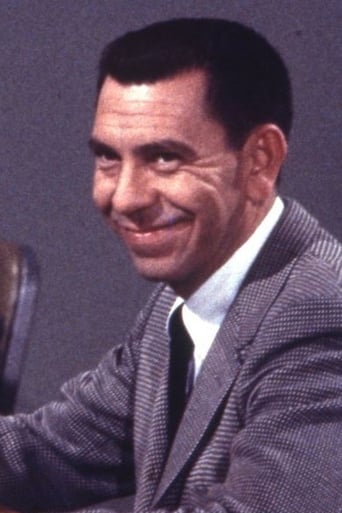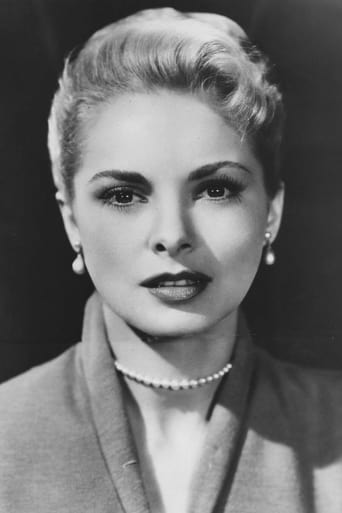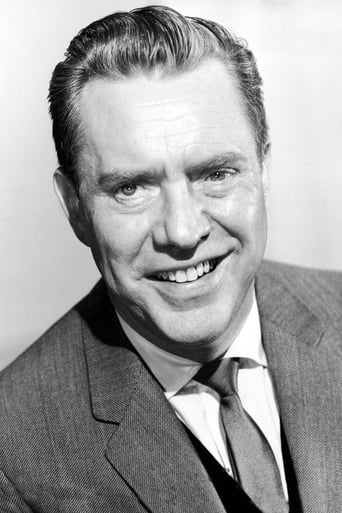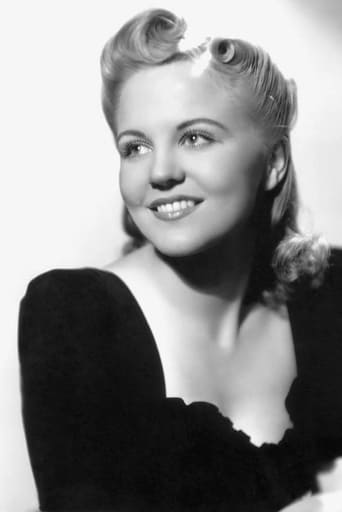Smartorhypo
Highly Overrated But Still Good
ShangLuda
Admirable film.
StyleSk8r
At first rather annoying in its heavy emphasis on reenactments, this movie ultimately proves fascinating, simply because the complicated, highly dramatic tale it tells still almost defies belief.
Fleur
Actress is magnificent and exudes a hypnotic screen presence in this affecting drama.
kapelusznik18
****SPOILERS*** Jack Webb riding high in his "Dragnet" TV series fans out here as a "Just the Music Mame" clarinet jazz musician Pete Kelly coupled as a crime fighter, like his Sgt. Joe Friday, in battling the mob headed by the whale like mobster Fran "Francis" McCarg, Edmond O'Brien. It's McCarg who's attempting to take control of Kelly's "Big Seven Band" working out of "Rudy's Speakeasy" in downtown Kansas City as well as all the other big bands in the Mid-West. That by McCarg forcing him to pay, 25% of the take, homage to him and his homeboys or else get his arms & legs broken. Acting at first like a tough cop instead of a sensitive clarinet player Kelly change his act when his drummer boy Joey Firestone, Martin Milner, who refuses to give into Mcarg's demands is gunned down by his boys one rainy evening leaving "Rudy's" to dry out after an all night binge of heavy boozing.Kelly now giving into McCarg's demands has his entire band start to check out on him for better pastures, or gigs, in the east which includes his fellow clarinet player Al "Gunny" Gunnaway, Lee Marvin. It's Gunnaway who takes Kelly's lucky mouthpiece, in revenge for breaking up that band of his, for his clarinet that he once gave him as a present.Living in limbo with no futures in the music or band business to speak of by being controlled by McCarg Kelly gets his big break when McCarg slips up by beating his girlfriend singer Rose Hopkins, Peggy Lee, almost into a coma. That by Rose, who was too drunk, being unable to belt out a song at the nightclub she was preforming in making him, who kept saying what a big hit she is, look ridicules.***SPOILERS*** Kelly soon finds out that Rose now mentally damaged with the mind of a five year old has information about Firedtone's murder that can send McCarg, who ordered it, straight to the electric chair! The ending is something like a scene out of "Gunfight at the OK Corral" with Pete and his girlfriend ivy, Janet Leigh, who just came along for the ride confront McCarg and his henchmen in this empty ballroom for a final dance. It's interesting to see how Jack Webb can pull all this off going from a crime fighter in "Dragnet" to a jazz clarinet player in "Pete Kelly's Bules" and does a fairly good job in doing it. It's just that the public warn't ready to see Webb change horse in mid-stream which had him go back to playing Sgt. Joe Friday for the rest of his career until the early 1970's with only one film "-30-" in between!.
edwagreen
Not only did Jack Webb star in the film, he also directed it. Trouble is that with his meek character at the beginning of the film, Webb was weak here and should have handed over the role to Bob Mitchum or Alan Ladd.That being said, the film chronicles the 1920s jazz era in Kansas City. Pete and other bands are subjected to the protection racket by Edmond O'Brien. When a drunken Martin Milner, a band member, resists, he is shot dead and Kelly (Webb) falls in line.Lee Marvin plays a band member who makes Kelly see the light and Janet Leigh is along for the ride as Kelly's love interest. With her '20's look, she is ready to start shimmering at any time.Credit must be given to Peggy Lee for her boozy moll to O'Brien. Her appearance on screen was memorable and she earned a supporting Oscar nomination for it. She was generally trying to make a take-off of Claire Trevor's Oscar win in 1948 for "Key Largo."After Kelly gets the nerve, the film turns into a shoot out by the end.
writers_reign
This is a movie that satisfies on so many levels and even manages to overcome a less than perfect print (I have long coveted this title and mentioned it to the guy in Norway who has been so generous in supplying me with French Classics: he located a print which, bizarrely is dubbed into Spanish whilst RETAINING the original English soundtrack). It also has to overcome Jack Webb's wooden acting and my personal aversion to Janet Leigh and it does this in Spades. On the first level it's a wonderful mixture of the visual and oral with Webb's eye for detail, period and otherwise, perfectly complemented by Richard L. Breen's brilliant screenplay liberally laced with faux-Chandler narration and dialogue (Webb in voice-over setting the scene, a brownstone in KC where his band is resident: It used to belong to a dentist but he moved to Chicago to get a piece of the flu epidemic. This line is so good that it doesn't really matter that the great flu epidemic was in 1928, one year later than the setting of the film. Later, when the hot-headed drummer Joey Firestone, is gunned down in front of Webb in torrential rain in an alley outside the club, Webb goes back inside and addresses Rudy, the owner: Webb: Get someone to bring Joey in. Rudy: Why? Webb: It's raining on him.Webb may have been wooden but he sure knew how to tell a story cinematically with touches like the one where he comes off the stand after a set, walks to the bar, leans against it, facing away from it, stretches a hand backwards into which the bartender places a towel, with which Webb (Pete Kelly) proceeds to wipe his brow. The movie is replete with touches like this, note, for example, the recurring motif when the band are relaxing in the kitchen in between sets and each time the door opens it creates a draught in the pizza oven. The beauty of this is that it ISN'T a plot point and no one remarks on it, it's just wonderful attention to detail. I could go on and on citing visuals like this and low-key dialogue because this movie is so rich in both. In a rare sympathetic role Lee Marvin is outstanding as Al Gannaway, the clarinet player and longest serving member of Pete Kelly's Big Seven, world-weary and tired of trouble, who leaves the band and returns again. Equally outstanding is Edmund O'Brien's Fran McCarg, a local gangster who offers the band both 'protection' and the services of a singer, his alcoholic girlfriend, Rose Hopkins, a truly outstanding performance by Peggy Lee. The final shootout is very reminiscent of Orson Welles, with one of McCarg's heavies lurking in the rafters above the glitter ball in a ballroom and Webb's camera shooting from above the man and looking down through both rafters and ball. Add Ella Fitzgerald to the mix plus some fine Dixieland Jazz (Dick Cathcart played cornet for Webb) and this is a true neglected gem.
telegonus
Jack Webb takes up the trumpet and takes on local gangsters in this colorful if at times somewhat peculiar movie about jazz musicians in the Kansas City of the Roaring Twenties. The story is disappointingly shallow and by-the-numbers, but there's some great music and songs from, among others, Peggy Lee and Ella Fitzgerald, courtesy of Ray Heindorf and Sammy Cahn.Webb was a strange case. A true pioneer of early television production, and in his way a true innovator, he made a virtue out of impassivity. He directs this one with more energy than his TV shows, but the dryness and apathy are still there. When he's dealing with conventional players, like Martin Milner, it's like he's directing himself. But when he's got a live wire, like Lee Marvin, who has a colorful supporting role in this one, or Andy Devine, who has an offbeat one, he seems almost to have the makings of an American Fellini. Deep down, I suspect, that Webb really loved crazy people. He just didn't know how to show it.





